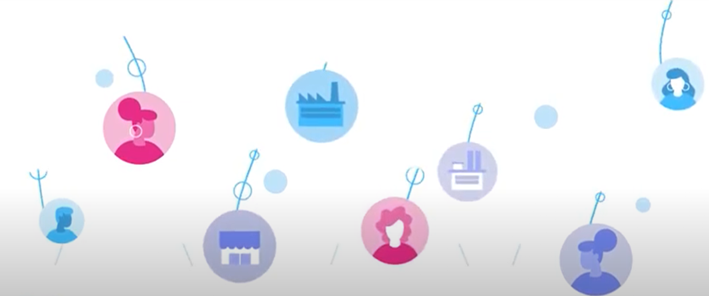The past two years of the CircThread project have been characterised by creating the foundations of a viable digital product passport (DPP) during which the WEEE Forum relied on its expertise as a global e-waste competence centre to actively contribute to the project.
“The Digital Product Passport will be a game changer for all businesses engaging in the electronic goods value chain: manufacturers, importers, component makers, materials providers, repair shops, remanufacturers, amongst others, as well as consumers that wish to put their legal right to repair into practice.
The Producer Responsibility Organisations in the WEEE Forum that responsibly manage the e-waste: want to be involved in efforts to shape the DPP; and want to have a stake in making the value chain more transparent, to make products, components, and materials more traceable.“- says Pascal Leroy, Director General of the WEEE Forum.

In the past few months, using information from all stages of the product life cycle e.g., from manufacturers, collectors, producer responsibility organisations, retailers, recyclers, repairers, consumer organisations, the project partners, including the WEEE Forum, evaluated the necessary and required information to be included in the DPP. As part of the process, project experts researched and identified 57 possible types of end users, such as the logistics manager of a municipal collection point, quality manager of a manufacturer or a manual worker at the refurbishing facility. Based on the results of the information exchange mapping exercise, a series of 15 main barriers were determined that pose potential obstacles to shifting from a conceptual idea to a real-world digital system. These barriers cover various aspects such as security, trust, privacy, organisational capacity, and social and economic incentive. Project partners, including the WEEE Forum, had to find implementable solutions to overcome these barriers and make the software platform operational such as:
- creating a green labelling system (recognisable and standardised for EU), including impact quantification, environmental footprint, lifespan of products and circular economy indicators, and
- developing a knowledge base of the drivers that move consumers towards recycled/recovered products and parts to raise awareness of the circular economy.
Alongside the mapping, the WEEE Forum’s technical team also participated in the internal analysis of strengths and weaknesses in relation to the competencies, resources, and competitive advantages of the digital product passport. Given the WEEE Forum’s international outlook with members operating on six different continents, we can provide input on the macroeconomic, global, political, social, demographic, and technological analysis of opportunities and threats of the DPP. Findings will be used to complete CircThread’s preliminary business model in the coming weeks.
Relying on WEEE Forum’s familiarity with the European legislative landscape and thorough overview of European standardisation, the association has also contributed to CircThread’s own publicly accessible Standardisation Toolkit, which is explained as providing, “a comprehensive mapping of which regulations and standards are relevant for exchanging information about products across their life cycle, from manufacturing through usage to collection and repair, reaching disassembly and recycling.”
The WEEE Forum’s role in the assessment of legislative and standardisation needs did not conclude when publishing the toolkit. In collaboration with project partners and stakeholder groups in the WEEE industry, consumers, and standardisation organisations, three workshops will be organised in the coming months to identify further gaps where standardisation and regulations must be developed to improve traceability while respecting circular economy principles.
The WEEE Forum is looking forward to the second half of the project when by combining the conceptual framework and research, developers will be able to further implement the CircThread platform and finetune its attributes. This will include the first pilot activities using integrated solar photovoltaic panels, domestic biomass smart boilers and lithium-ion-LFP batteries that will soon commence in Spain, led by CARTIF. It will be the first step in testing the system before moving onto Italy with a focus on dishwashers assisted by BSH while the Slovenian trial will touch on washing machines with the help from Gorenje.
Written by WEEE Forum partner.